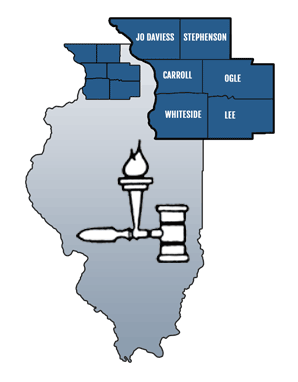Problem Based Learning Model of Field Training-Basic Police Training Officer-Freeport
Ends On: Friday, January 17, 2025
Registration Deadline: Wednesday, January 1, 2025
Time: 8:00 AM - 5:00 PM
Stewart Center West
Freeport, IL
Members' Fee: $0
Sworn Non-Members' Fee: $0
Non-Members' Fee: $0
DOWNLOAD FILE
This course has been approved by ILETSB to meets the following mandates:
Civil Rights (.5 Hours)
Constitutional and Proper use of Authority (.5 Hours)
Crisis Intervention (1 Hour)
Cultural Competency (2 Hours)
Human Rights (.5 Hours)
Officer Wellness and Mental Health (1 Hour)
Procedural Justice (5 Hours, 3 Hours Scenario based)
Use of Force De-Escalation Techniques (.5 Hours)
Use of Force Officer Safety Techniques (.5 Hours)
Basic Field Training Officer
PROBLEM-BASED LEARNING MODEL OF FIELD TRAINING COURSES
Course Synopsis
Problem-Based Learning Model of Field Training – Basic Police Training Officer
PURPOSE OF COURSE: This 40-hour program has been designed by James Wagner and Associates, LLC
for the purpose of providing a field training model for police recruits that incorporates adult learning
theories and problem-based learning. This course will enable trainers to use these methods to develop
new police officers who will be competent in the areas of community policing and problem solving.
COURSE OVERVIEW: The primary focus of the course will be to provide training officers with the
specialized skills, knowledge and abilities needed to train a recruit using the principles of this training
model.
COURSE GOALS: The goals of this course are to:
1. Engage in adult learning techniques. Trainees apply the PTO manual to their training within the
PBL context: cooperative learning, group work, scenario-based exercises, and lecture formats.
2. Identify requirements for legally defensible and valid training.
3. Study the Learning Matrix cells within the PBL model and add to them, when appropriate to meet
local agency needs.
4. Engage in problem-based learning as a method to organize their study of both the matrix and the
program’s evaluation models.
5. Incorporate research on new education movements into their training plans, including research
on PBL.
6. Develop resources for Learning Activity Packages.
7. Practice using evaluation methods and forms during role-play, scenarios, and PBL training.
8. Employ current technology, including the internet and automated computerized systems.
9. Teach classmates relevant information on emotional intelligence, multiple intelligence, and conflict resolution for use in their training program.
10. Design, create, and/or review Learning Matrix binders.
11. Evaluate this training course.


